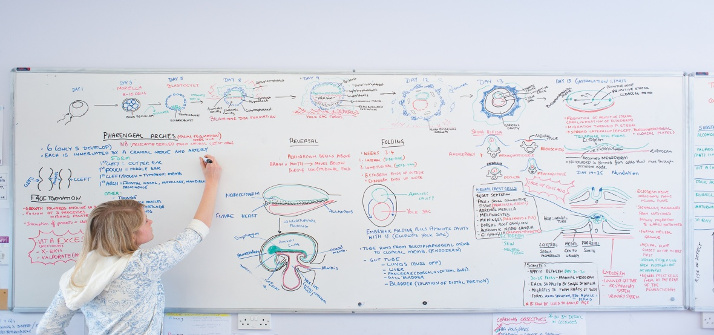
December 6, 2019, by Jackie Thompson
On a professional course? Tips on self-development, building your portfolio and decision making
By Fady Anis, medicine graduate and junior doctor on the Academic Foundation Programme
At the beginning of Medical School, I was fairly adamant that I wanted a career in one of the surgical specialties. My experience and understanding of what it meant to be a surgeon was purely based on the few weeks’ work placement I undertook so I had something to write about in my personal statement.
I had no interest in academic medicine and was naïve to the concept of presenting at conferences and the importance of publications.
Be active in medical societies
Throughout Medical School, I developed a greater understanding of the different specialties through the variety of placements that I undertook in my clinical years. I was therefore able to highlight the specialties that I most definitely did not want to do.
With a strong interest in surgery I joined SCRUBS (the University’s student surgical society) and INSPIRE (an academic medicine student society) eventually becoming the President and Vice-President respectively. Those societies not only allowed me to network with people who were doing the specialties I was interested in but also contributed significantly to my Academic Foundation Programme application.
Take part in projects and audits
In my first three years, I took part in a variety of research projects and audits within different departments; Neurosurgery, Ophthalmology and Medical Education. I made sure that each project was submitted to a conference so that there was always a form of formal recognition for the work.
It’s quite hard to get a piece of work published. I would recommend ensuring your supervisor is aware that you would like to work towards something that could be published (even though there are never any guarantees). The BMedSci is a perfect opportunity to get a publication and therefore it is worth pursuing your supervisor after submission.
A successful application
My positions in medical societies, presentations in conferences and publications formed the basis of my successful Academic Foundation Programme application. Even though this may take up some of your free time, make sure you do things that you enjoy!
My advice to you
1. Get involved in both medicine and non-medicine extracurricular activities
2. Research the already published points allocation mark scheme for the Foundation Programme and Core Training. This is important as it directs your focus to the different things you can do to ensure you score the maximum points and therefore puts less emphasis on your Educational Performance Measure (EPM) decile (Medical School ranking) and the Situational Judgement Test (SJT) score
3. Keep track of all the presentations and certificates for your portfolio
4. Try to make contact with the specialty you are interested in and speak to them about any potential projects
5. Attempt to take part in national conferences, essay competitions and apply for bursaries and scholarships – they all count as achievements on your application
Find out more about Foundation Training including how to apply on our website. If you would like to speak to an adviser, book an appointment with our team in the Medical School.
No comments yet, fill out a comment to be the first

Leave a Reply